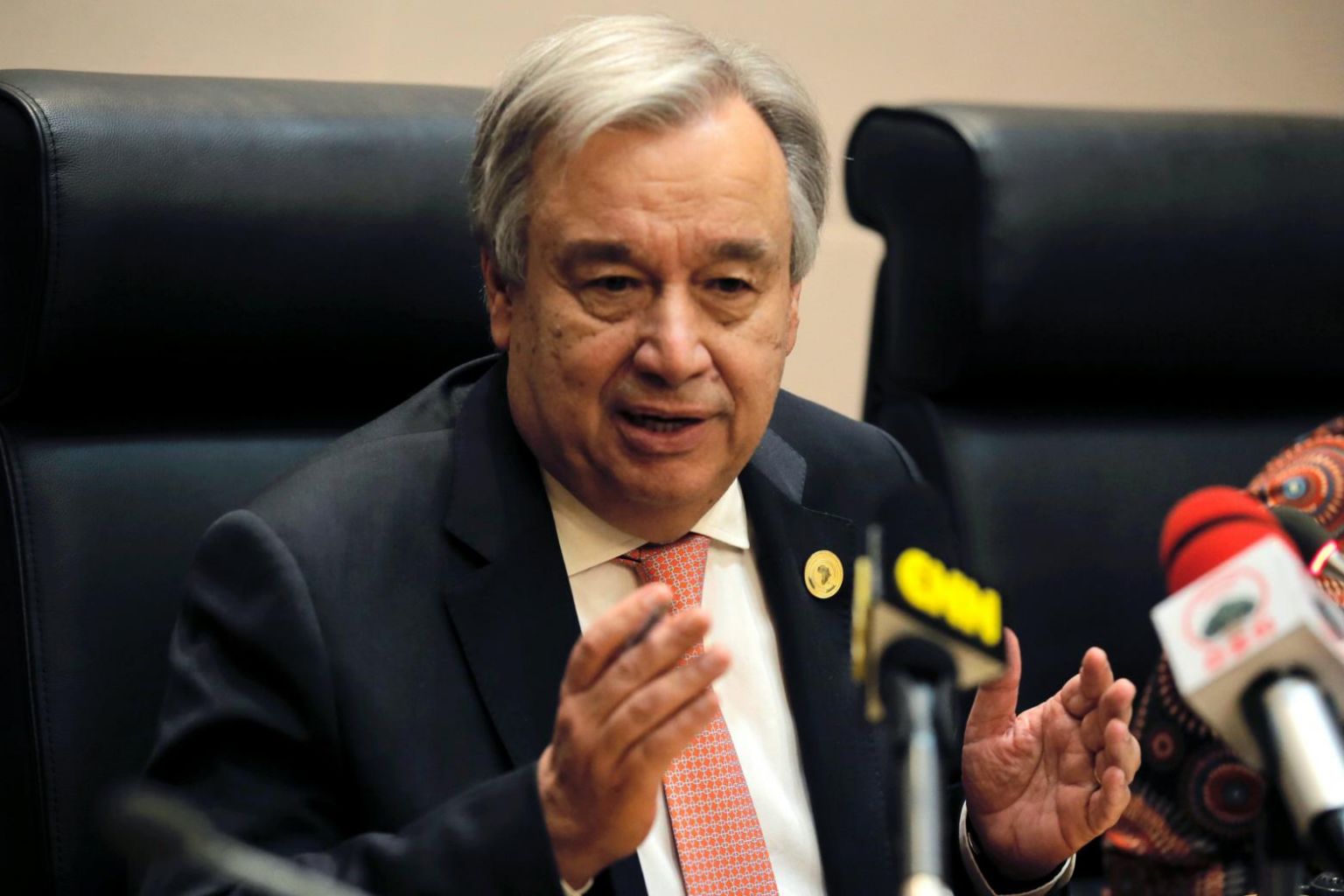UN refers Guyana-Venezuela border dispute to ICJ
Sign up now: Get ST's newsletters delivered to your inbox

United Nations Secretary-General Antonio Guterres referred the dispute to the International Court of Justice after Venezuela and Guyana failed to reach an agreement.
PHOTO: REUTERS
Follow topic:
GEORGETOWN, GUYANA (AFP) - UN Secretary-General Antonio Guterres on Tuesday (Jan 30) referred a more than century-old border dispute between Guyana and Venezuela to the International Court of Justice after a year of talks failed to make progress.
Venezuela has been pressing a historic claim to Guyana's Essequibo region, which encompasses two thirds of the former British colony, since US oil giant Exxon Mobil discovered oil in disputed waters off its coast in 2015.
Former UN secretary-general Ban Ki Moon had appointed Dag Halvor Nylander of Norway to help broker a settlement by the end of 2017 with a strengthened mandate of mediation.
"The Secretary-General has carefully analysed developments in 2017 in the good offices process and has concluded that significant progress has not been made toward arriving at a full agreement for the solution of the controversy," Stephane Dujarric, a spokesman for Guterres, said in a statement.
"Accordingly, the Secretary-General has fulfilled the responsibility that has fallen to him within the framework set by his predecessor in December 2016, and has chosen the International Court of Justice as the means to be used for the solution of the controversy."
Guyana maintains that valid land borders were set in 1899 by an arbitration court decision, a decision Venezuela has never recognised.
The announcement in May 2015 of a significant discovery of high-quality oil in an offshore concession 190 km off Guyana set off a round of recriminations between Venezuela and its eastern neighbour.
Later that year, Guyana announced it would contact Google to remove certain street names from the disputed region that were given Spanish names that seemed to suggest they were part of Venezuela.
Streets have English names in Guyana, as opposed to those in neighbouring Spanish-speaking Venezuela.
Guyana is pressing ahead with plans to drill for oil in the disputed waters, with production expected to begin in mid-2020.
Guyana's foreign ministry said it welcomed the decision, adding the ICJ is the "appropriate forum for the peaceful and definitive settlement of the controversy, and is pleased that that view has prevailed under the process."

